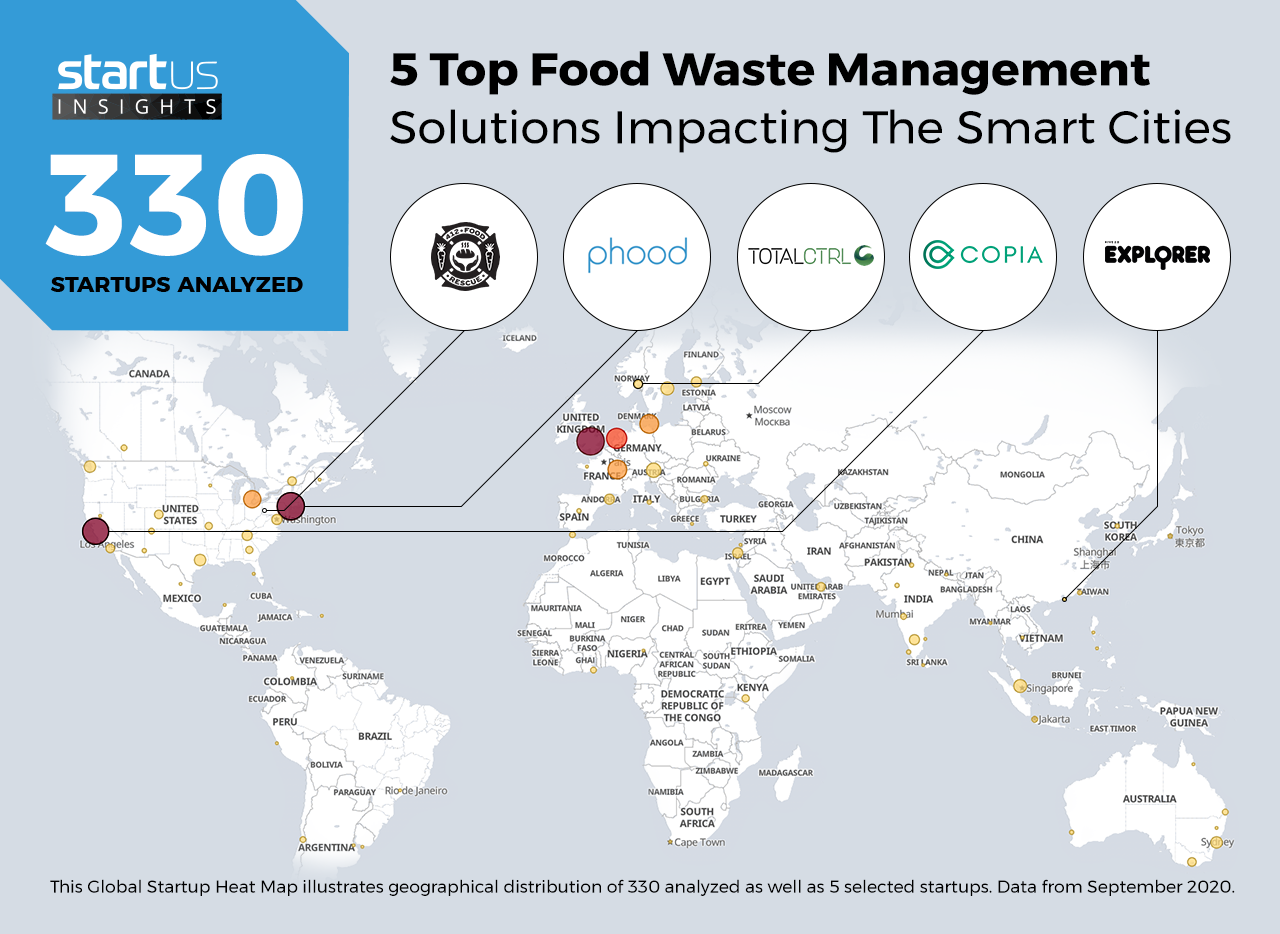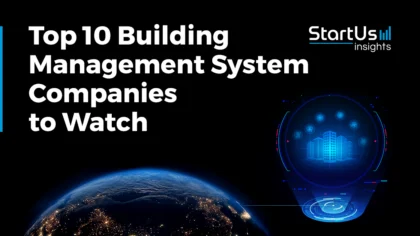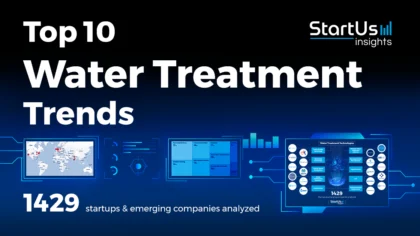Our Innovation Analysts recently looked into emerging technologies and up-and-coming startups working on solutions for smart cities. As there is a large number of startups working on a wide variety of solutions, we decided to share our insights with you. This time, we are taking a look at 5 promising food waste management solutions.
Heat Map: 5 Top Food Waste Management Solutions
Using our StartUs Insights Platform, covering 1.116.000+ startups & emerging companies, we looked at innovation in the field of food management. For this research, we identified 330 relevant solutions and picked 5 to showcase below. These companies are chosen based on a data-driven startup scouting approach, taking into account factors such as location, founding year, and relevance of technology, among others. Depending on your specific criteria, the top picks might look entirely different.
The Global Startup Heat Map below highlights 5 startups & emerging companies developing food waste management solutions. Moreover, the Heat Map reveals regions that observe a high startup activity and illustrates the geographic distribution of all 330 companies we analyzed for this specific topic.
Copia – Food Recovery Solution
Nowadays, food waste recycling programs that restaurants, hotels, and grocers implement have a direct social, financial, and environmental impact. The food waste that gets dumped in landfills also contributes to increases in carbon emissions. Environmentally conscious companies seek partnerships with non-profit organizations to improve the systems for food waste management. Technology startups are working to develop solutions to connect excess food and distribute them to various non-profit organizations.
The US-based startup Copia provides an end-to-end solution for excess food to be redirected towards those in need. Utilizing its proprietary technology, the Copia dashboard provides real-time data and insights into organizations’ food surplus management. Copia enables businesses to analyze their consumption trends to better understand the requirement, to later produce optimal amounts of food. Business cafeterias, restaurants, hospitals, and hotels are some of the partners who work with Copia to manage their excess food.
TotalCtrl – Food Inventory Management
Organizations incur a considerable amount of expense due to food waste. Proper inventory management helps reduce food waste and uncover hidden costs while also maximizing the return on investment (ROI) on products. For customers, the remaining period of the expiration date is an important criterion when buying food products. Emerging companies utilize the expiration date to reduce food waste and make the food supply chain more safe and efficient.
Norwegian startup TotalCtrl enables organizations to optimize their inventory based on its eponymous automated expiration systems. TotalCtrl, a software solution, automatically harvests data and integrates with existing infrastructure. The software replaces the manual work of checking the expiration information and enables efficient shelving of products. This solution provides an overview of products that are about to expire in order to sell them first, resulting in reduced food waste.
412 Food Rescue – Excess Food Management
Socio-economic hardships such as hunger and poverty are prevalent across the world. At the same time, significant amounts of food get wasted on a daily basis from restaurants, hotels, and other food businesses. Startups are bridging the gap between food waste and global hunger to optimize sustainable food waste management systems. One such system looks to redirect food surpluses to various food security schemes.
The US-based non-profit organization 412 Food Rescue works to prevent food from becoming waste. The startup harnesses its vast volunteer-led food transport network in urban cities. The startup’s Food Rescue Heroes mobile application identifies the closest volunteers and sends them notifications about the availability of excess food in its partner network.
Phood – Artificial Intelligence (AI)-Enabled Food Waste Prevention
Over the years, the food habits of people around the world have transformed significantly. More people prefer to eat out more often these days, rather than have home-cooked meals every day. While this results in the way of convenience for many people, it also results in food waste at restaurants. Technological advancements in artificial intelligence enable startups to develop innovative solutions to manage food waste outside the home.
The US-based startup Phood provides PHOOD X, a tabletop solution, and PHOOD XL, for daily waste disposal, both waste tracking devices for kitchens. With the help of AI and computer vision, the startup identifies waste products along with data such as the origin and movement of waste inside kitchens. The food waste data later helps companies analyze the root causes of food waste and prevent it before it occurs. In addition, Phood follows the US Environmental Protection Agency’s (EPA) food recovery hierarchy to manage and distribute food waste.
LIVIN farms – Alternative Protein From Food Waste
Mealworms are a source of protein for the poultry industry and are also used in pet foods. Mealworms use food waste to thrive and do not require much maintenance while also providing a considerable amount of edible protein. With advancements in the internet of things (IoT), smart sensors enable startups to create miniaturized mealworm cultivation devices to reduce food waste generation both outside and inside the home.
Operating from China and Austria, LIVIN farms offer Hive Explorer, a mealworm starter kit for households to convert kitchen scraps into fertilizer for plants. The startup enables upcycling of food waste in households with the help of IoT sensors, as well as a high-efficiency particulate air (HEPA) filter, fan, and heat plate. The startup’s smart device creates a conducive environment for mealworms to complete their full life cycle. The mealworms are also edible, providing a source of protein, while its excreta is suitable as fertilizer for gardens.
What About The Other 325 Solutions?
While we believe data is key to creating insights it can be easy to be overwhelmed by it. Our ambition is to create a comprehensive overview and provide actionable innovation intelligence and enable you to achieve your goals faster. The 5 food waste management solutions showcased above are promising examples out of 330 we analyzed for this article. To identify the most relevant solutions based on your specific criteria, get in touch.









